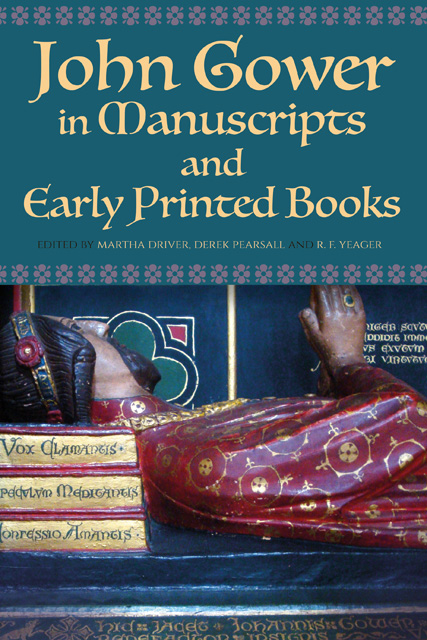14 - George Campbell Macaulay and the Clarendon Edition of Gower
Published online by Cambridge University Press: 18 January 2023
Summary
On 6 july 1895 George Campbell Macaulay signed a contract with the Clarendon Press to produce an edition of The Complete Works of John Gower. The contract specified that it was to be “in not more than five volumes octavo” and of “not less than 2000 and not more than 2500 pages.” It also stipulated that the work should be completed in less than four years, by 31 December 1898, although this was later modified to December of the following year for the bulk of the work. The first volume did appear in 1899, the next two not until 1901, the last in 1902. In total the work just crept over the 2500-page limit, weighing in at 2519 pages of which 2178 were text, the rest prefatory matter or annotation.
For an individual to accomplish so much so speedily was in itself a notable achievement. It may seem the more so since it was undertaken by someone who had had no prior experience of editing medieval texts, who had never held an academic post, and who had had to support himself and a large family throughout this undertaking, and for some time before and after it, without regular employment. And more than a century after its completion Macaulay’s edition of Gower remains the standard one. Indeed, in the current academic climate it is hard to see how it could be replaced.
To have completed such a massive edition in such circumstances suggests a figure whose intellectual and personal qualities invite some examination. George Macaulay remains elusive to posterity. His death was marked by a single obituary. He does not appear in either the Dictionary of National Biography or the Oxford Dictionary of National Biography. Such biographical material as I have been able to discover is fragmented, and fails to shed any light on crucial aspects of his career. For the most part his life can only be seen obliquely, through his various publications and occasionally perhaps refracted through the writings of his second daughter, the poet, critic, and novelist, Rose Macaulay.
Hence, while what follows may make aspects of Macaulay’s life slightly clearer in some aspects, the larger picture of his dealings with Gower continues to elude me and I am keenly aware of the inadequacies of my account. I can only hope to contribute a little to the appreciation of a remarkable scholar.
- Type
- Chapter
- Information
- John Gower in Manuscripts and Early Printed Books , pp. 247 - 262Publisher: Boydell & BrewerPrint publication year: 2020



